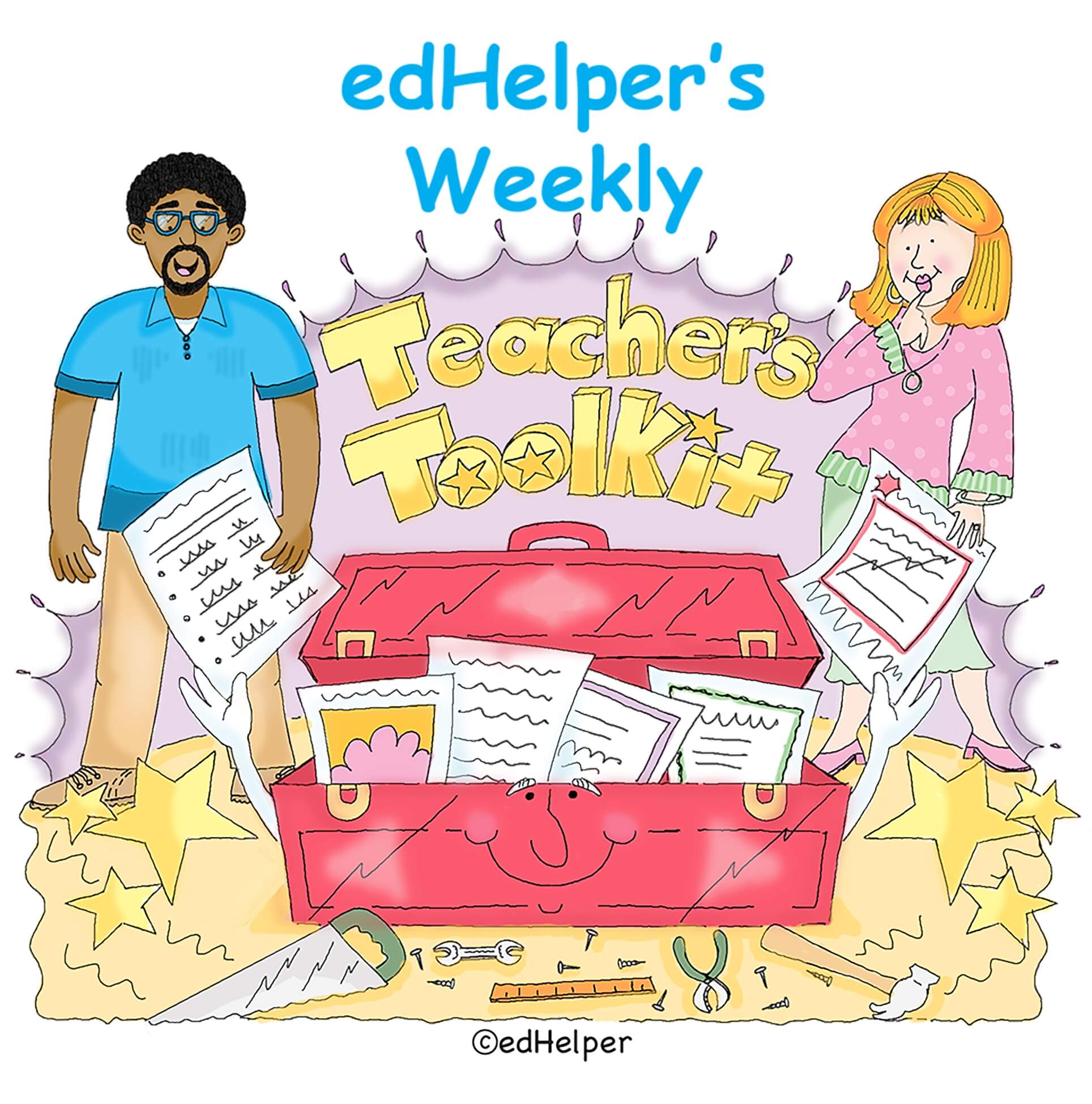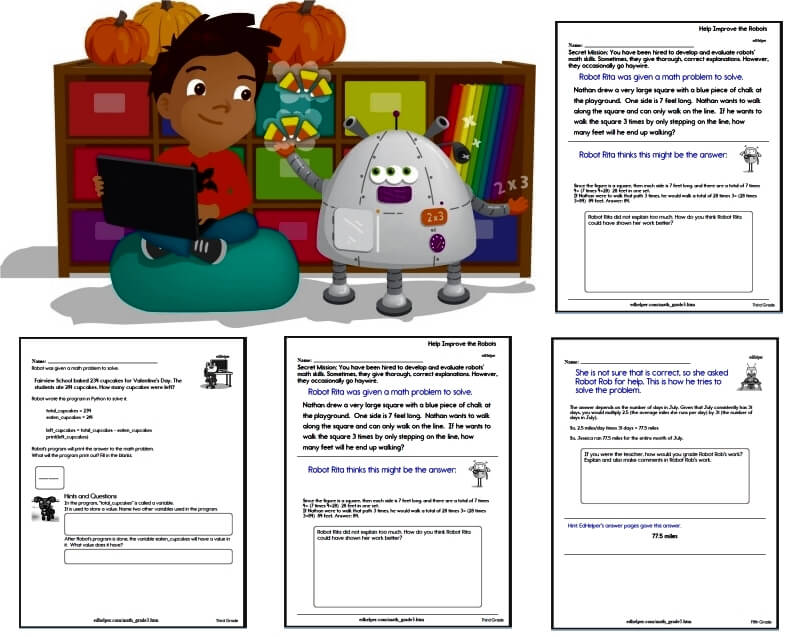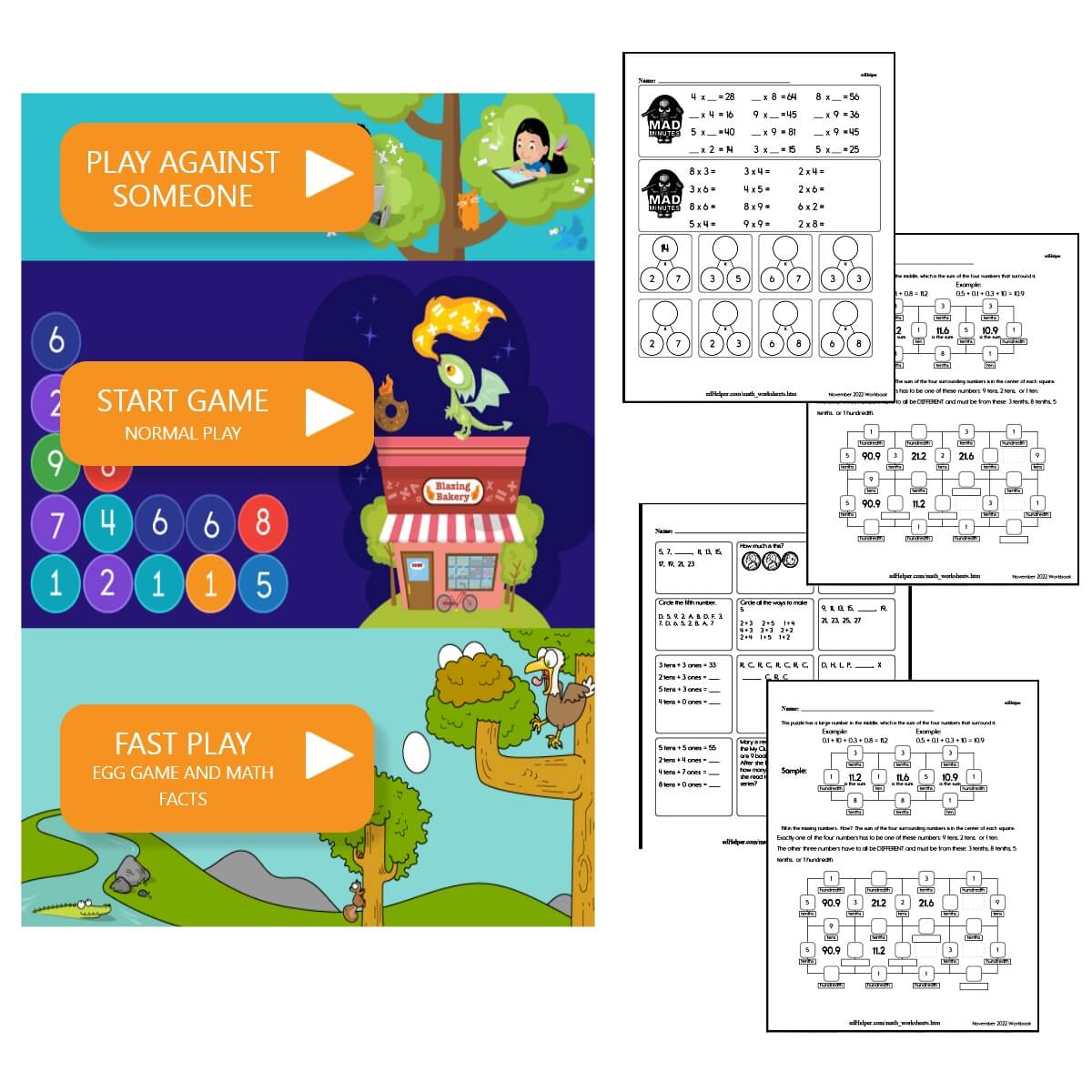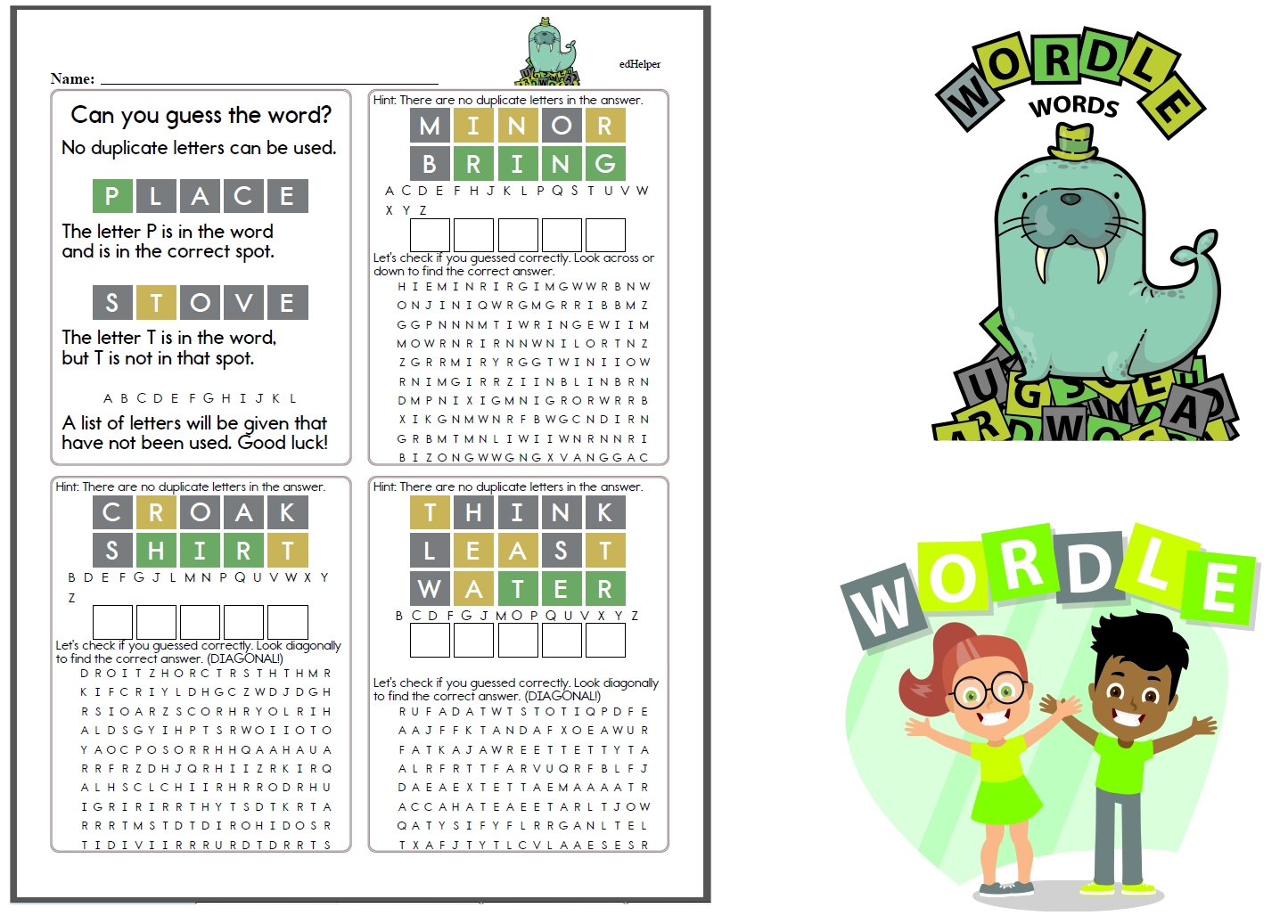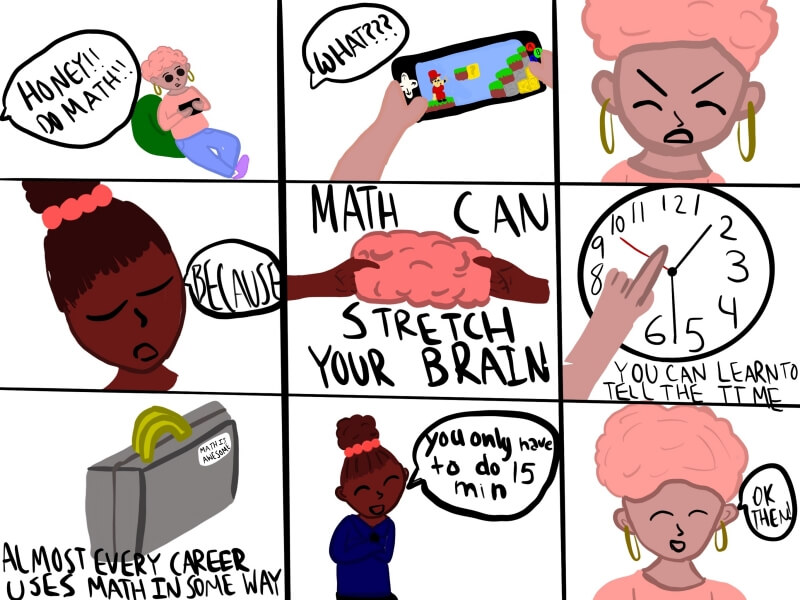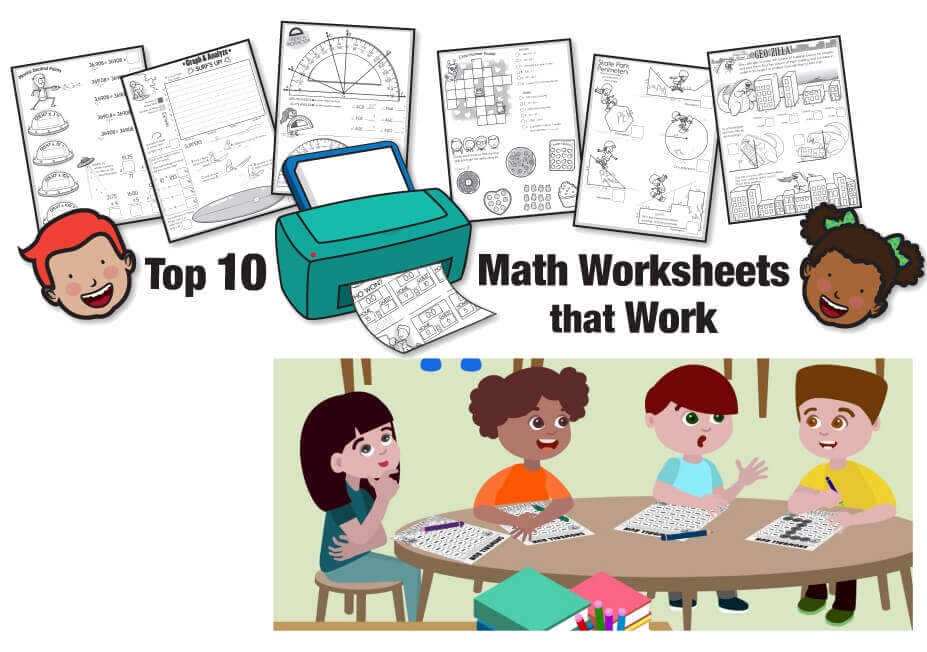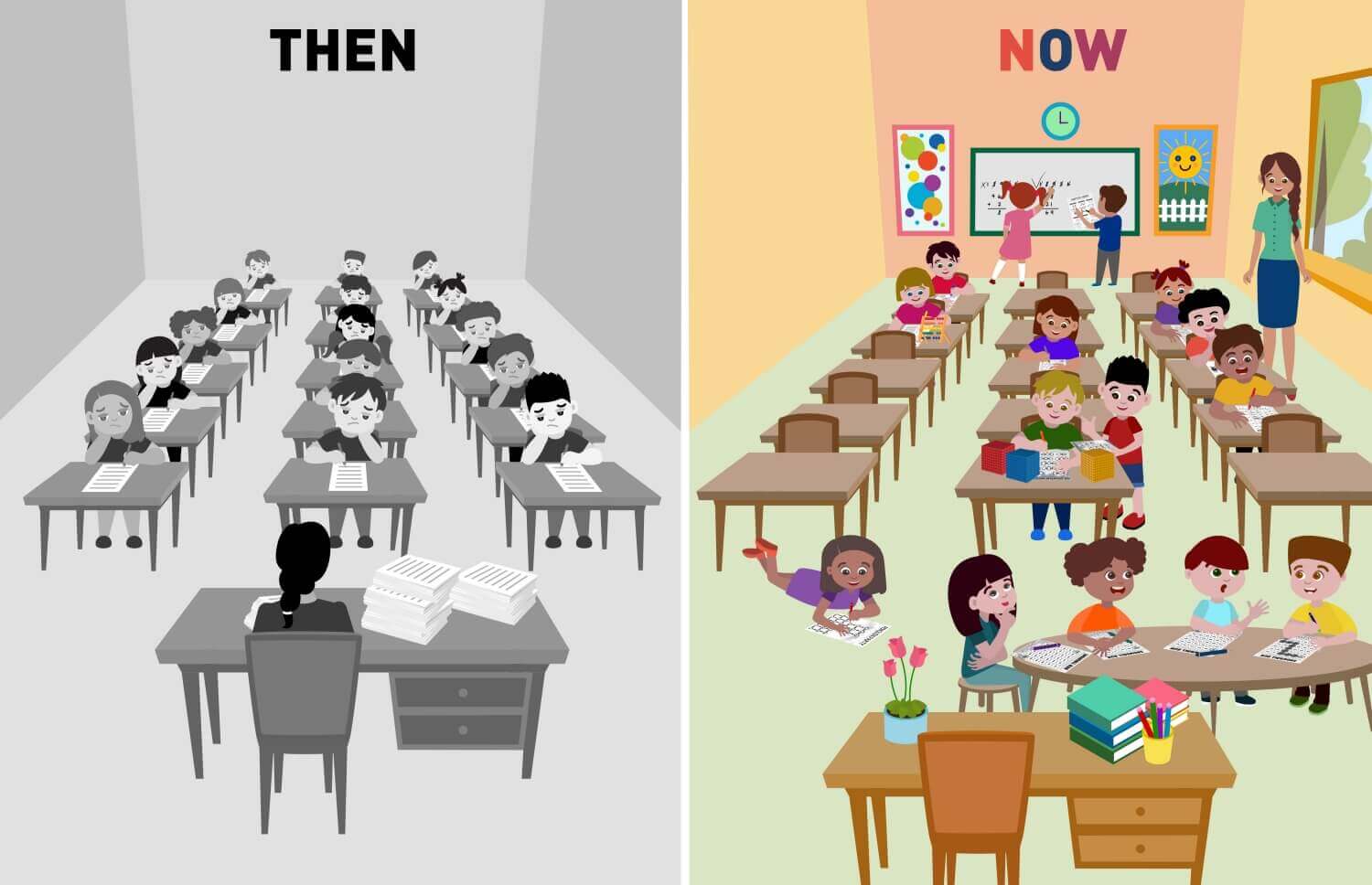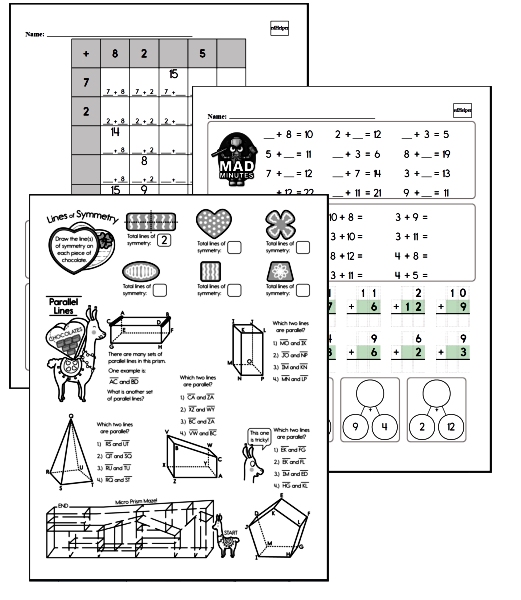Make the Most of Your First Year Teaching Fourth Grade
By: edHelper Staff
Updated: Aug 3, 2023

Make the Most of your First Year as a Fourth Grade Teacher
To say teaching fourth grade can be a bit of a roller coaster ride is an understatement!
Fourth graders freely experience and communicate intense emotions, like joy and anxiety, and they care deeply about school. They can be competitive, critical, and unconfident, but they are also playful, funny, and enthusiastic.
Teaching fourth grade can be challenging, but it can also be intensely rewarding and downright fun! You just have to arm yourself with developmental knowledge and tips that will help you make the most of your first year teaching this rambunctious grade.
Decorate

Find a Consistent Way to Get Their Attention Quickly
There's a lot of energy in a fourth-grade classroom. Getting the attention of students can be difficult, and it can be tiring. It isn't uncommon for new fourth-grade teachers to lose their voice by the end of the day. It's not because they're angry but because it takes dedication and volume to get the attention of a classroom full of fourth graders!
That is unless you find a consistent way to get their attention quickly and calmly.
Getting their attention could be something as simple as clapping your hands or as technological as using a doorbell. Whatever you choose to do, make sure your students know what it is, and be consistent. Once you've established the habit, your students will quiet down quickly without the need to raise your voice.
Make Math Worksheets Interesting
Math worksheets are a great way for fourth-grade students to practice new concepts. They're a great way to work on memorizing facts too. The only problem is that fourth graders often find worksheets boring.
But they don't have to be!
Choose worksheets that are fun and engaging with pictures, puzzles, and even games-not just worksheets with lists of problems to solve.
How you ask students to complete worksheets can make them more interesting too. Allow students to work together in pairs or small groups to complete worksheets. You can get really creative and have students rotate to different stations, each of which has a worksheet where they answer one question before moving on to the next station. You could even play a kind of get-to-know-you game where students have to walk around the room and get every other student in the classroom to answer one problem on their worksheet.
Looking for educational worksheets that are actually fun? Check out EdHelper's extensive database of math worksheets that have been specially developed for fourth graders!
Create Homework Goals
Most kids don't get enough math practice at home, but it's important for their learning. Even with just a few extra minutes of practice a few times a week, students can sharpen their skills and lay the foundation for greater math achievement in the years to come.
Make doing math homework more fun and encourage your students to actually remember to do it by creating homework goals for the whole class.
You might challenge everyone in the class to turn in their homework on time, or you might challenge everyone in the class to do a little extra math practice at home once a week. When you have reached your goal, reward the class. Schedule an extra recess, watch a movie, or have a pizza party. Let them help you choose what the reward is so they are motivated to achieve it.
Looking for great fourth-grade homework ideas? We've got math workbooks, reading comprehension worksheets, and more!
Transition From Rules to Values
In fourth grade, some students may begin to challenge the rules. Without a why behind the rules, some students don't feel like it's important to follow them.
Change the conversation from classroom rules to classroom values so you can introduce the deeper meaning behind the rules in your classroom. For example, you might talk about respect and how respecting each other and the other teachers in the building means standing quietly in line.
Get your students in on the conversation. What do they value in the classroom? And how can they express those values to their classmates and teachers?
When you're done, you can create a class values statement that summarizes important classroom values and how they can express those values by following the rules. Then, have your students sign their names on it and hang it on the wall. It's a great way to make your students feel ownership and dedication to the values you establish in your classroom.
Help Students Assess Their Own Behavior
Fourth graders are making the transition between needing others to tell them how they're doing and being able to assess it for themselves. Self-assessment is an important skill to cultivate because it teaches self-efficacy and can boost self-esteem. Not to mention, it will serve them well in adulthood when they no longer have teachers to tell them how they're doing.
Self-assessments can be informal. For example, you can ask a student how they feel about the score they got on a test and what they can do to get a better score next time.
Assessments can be more formal too. You might pass out a simple self-assessment that asks students to circle a smiley face, frowny face, or straight face to demonstrate their knowledge in a certain academic area. These types of assessments can also be used to encourage students to assess how well they embody the values you agreed upon as a class.
Take the Pressure Off
Pressure doesn't work well in fourth grade. Nine- and ten-year-olds experience emotions deeply, and that means tests, worksheets, and other activities that come with a lot of pressure tend to elicit strong feelings of anxiety. That stress often leads them to believe they aren't good at a subject, like math, or that they don't like certain activities-not because of the activity itself-but because of the way it makes them feel.
Even if you have a big assessment coming up, avoid high-pressure tactics, like weekly math quizzes or emphasizing reading comprehension scores. Instead, try playing games that enable them to learn math facts and don't unnecessarily build up any upcoming assessments. That way, your fourth graders spend less time feeling defeated and more time feeling empowered to tackle whatever comes their way.
Balance Physical Activity With Periods of Calm
Fourth graders can concentrate for 20-30 minutes. That's great news for fourth-grade teachers! It means you can set your students up with a worksheet or an activity while you have time to meet with a small group or prepare for the next subject.
But fourth graders are wiggle worms too. They can't sit still for too long, and some students struggle with bad habits, like twirling their hair or chewing on the ends of their pencils.
That's why it's important to mix physical activity with periods of calm. Plan your day so that the longest stretches of concentration are followed by recess. You might have students do jumping jacks between subjects or lead them in doing some stretches if they seem particularly squirrelly ahead of an activity that will require their full attention.
Try Not to Be Too Serious
Fourth graders love jokes. They are playful and have a great sense of humor. They often come up with creative ways to approach an activity, or they may come up with their own unique routine for getting their work done.
Give them the space to express themselves without being too serious, critical, or rigid. If you have a student who wants to stand while completing worksheets, let them. Make time to read silly poetry and let kids get creative by acting out short skits from the books they are reading. Find the humor in loud verbal observations, like "Ew!" during a science experiment or "That's dumb!" during a math lesson.
Approach your classroom with patience, kindness, and flexibility. If their behavior isn't hurting themselves or others, try not to be annoyed by it and instead observe their quirkiness with curiosity.
Fourth graders can bring a lot of joy to your life, but teaching them comes with plenty of challenges too. By following our tips, you can make the most of your time as a fourth-grade teacher so that you look forward to teaching a new group of fourth graders next year!
Fourth Grade Resources



